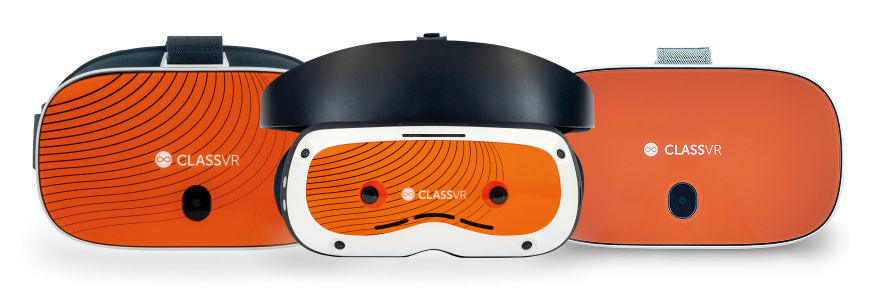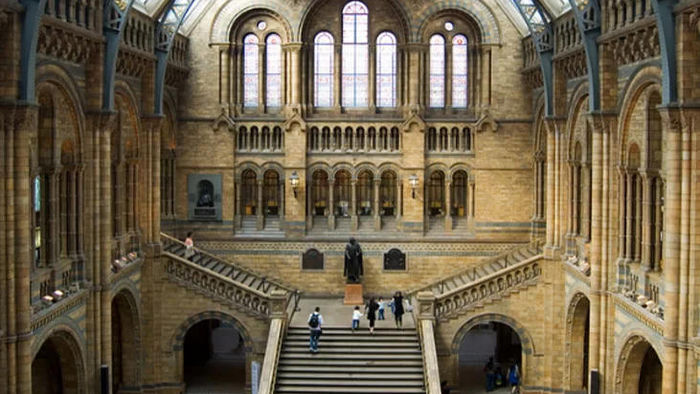
Virtual Reality in Industry and Commercial Workplaces
From Classrooms to Workplaces, Virtual Reality Is Redefining How We Learn, Train, and Grow
Transforming Training and Careers with VR and AR
Virtual Reality and Augmented Reality are unlocking a wide range of opportunities across industries, transforming the way organisations operate, train, and innovate. From immersive 360° property tours redefining real estate to advanced simulations enhancing situational awareness in military training, VR is driving efficiency, safety, and performance in both commercial and government sectors.
ClassVR is a powerful tool for workforce development, professional training, and education. Our solutions go beyond traditional learning methods by immersing users in realistic, interactive environments where knowledge is gained through experience, not just theory. This approach ensures greater engagement, deeper understanding, and higher knowledge retention.

Why Choose ClassVR
- Built for Learning
- Simple to Use
- Proven Results
- Globally Trusted
Step Into Immersive Learning
ClassVR Xcelerate and EduverseCTE bring the power of virtual reality to career and technical education. With expertly curated content and advanced hardware that supports full spatial movement, this all-in-one solution delivers a truly immersive learning experience.
From hands-on vocational and technical training to AI-driven soft skills coaching. EduverseCTE gives employees the confidence and experience they need to thrive.
See ClassVR in Action Across Industries
Discover how organisations are transforming productivity, training, and experiences by integrating ClassVR into the workplace.

Road Safety
Police forces, fire services, and road safety authorities are using ClassVR to influence driver behaviour and improve safety outcomes.
Immersive, true-to-life simulations of road incidents give drivers a powerful, eye-opening perspective that makes safety messages more engaging, memorable, and impactful.
.jpg)
Corporate Training
ClassVR takes training beyond the classroom and into fully immersive learning environments.
From hands-on technical skills to leadership development, employees can practice in safe, simulated settings, building confidence, improving performance, and eliminating the risks of traditional training methods.

Military and Defence
In defence, safety and realism are critical. ClassVR allows personnel to experience high-pressure or hazardous scenarios within a safe, controlled environment.
By training in immersive simulations, military staff and contractors can build essential skills and confidence, without exposure to real risk.

Real Estate
Virtual and augmented reality are redefining how clients experience spaces. With ClassVR, estate agents can showcase entire property portfolios from one office or allow buyers to walk through designs and floorplans before construction even begins.
VR brings spaces to life in ways traditional visuals simply cannot.

Public Attractions
Museums, aquariums, and science centres are extending their reach with ClassVR.
Immersive VR content can travel beyond the walls of an attraction, into classrooms, community groups, or care homes, making learning and discovery more accessible, engaging, and memorable for all.

Healthcare and Wellbeing
ClassVR is supporting healthcare professionals by offering immersive tools for pain management, distraction, and emotional wellbeing.
Patients benefit from calming or memory-evoking experiences, while care facilities use VR to enhance quality of life for older adults, reduce anxiety in hospitals, and promote mental wellness in safe, non-invasive ways.
Frequently Asked Questions
What is Virtual Reality (VR) in industry?
Virtual Reality (VR) in industry refers to the use of immersive 3D environments to simulate real-world industrial processes, equipment, and scenarios.
Instead of working directly on machines or construction sites, employees can interact with realistic simulations for training, design, or testing. Use VR resources to reduce costs, improve safety and accelerate innovation across industries such as manufacturing, construction, automotive, and energy.
What makes ClassVR different from other VR solutions?
ClassVR is designed to be simple, scalable, and versatile. It combines powerful VR headsets with a secure management platform, making it easy to control, deliver, and adapt immersive content across industries and sectors.
What industries are currently using VR technology?
VR technology is being adopted across a wide range of industries to improve training, design, and operations. Key sectors include:
Retail & Real Estate – for virtual showrooms and property tours.
Manufacturing – for product design, prototyping, and worker training.
Construction & Architecture – for 3D building walkthroughs, safety training, and project planning.
Automotive & Aerospace – for design testing, assembly line training, and maintenance simulations.
Healthcare – for medical training, surgical simulations, and patient therapy.
Energy & Utilities – for hazardous environment training and remote inspections.
Why is VR important for industrial training and operations?
VR is important for industrial training and operations because it provides a safe, controlled, and cost-effective environment to learn and practice.
Workers can train on complex machinery, hazardous tasks, or emergency procedures without the risks of real-world accidents. For operations, VR enhances planning, remote collaboration, and decision-making by allowing teams to visualise and test processes before implementation. This reduces downtime, improves safety, and boosts productivity.
What are the advantages of using VR for employee training?
The advantages of VR for employee training include:
Realistic scenarios: Workers experience lifelike situations they may rarely encounter but must be prepared for.
Enhanced safety: Employees practice high-risk tasks in a risk-free environment.
Better knowledge retention: Immersive experiences improve focus and memory recall.
Cost savings: Reduces need for physical equipment, travel and shutdowns for training.
Scalable training: Multiple employees can be trained consistently across locations.
Can ClassVR be customised for different industries?
Yes. ClassVR is a flexible platform that allows organisations to upload and deliver their own 360° images, videos, and 3D models. This adaptability makes it suitable for a wide range of uses, from museums and aquariums to healthcare settings and corporate workplaces.